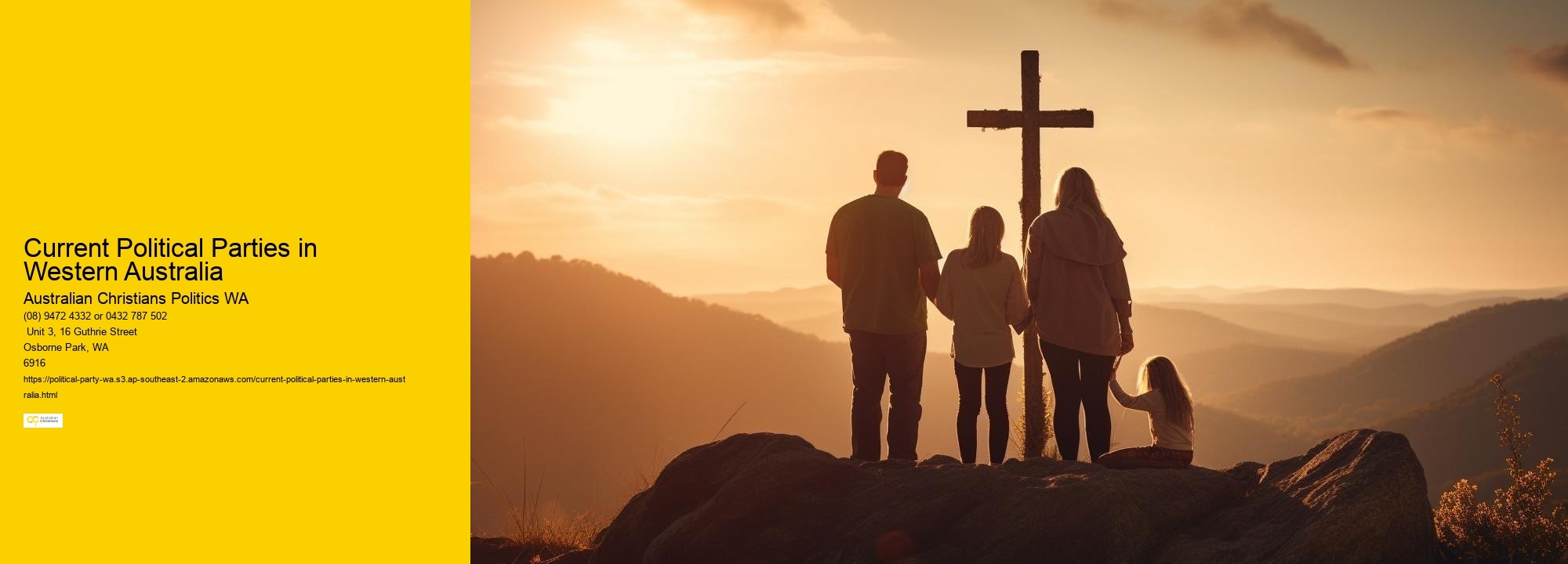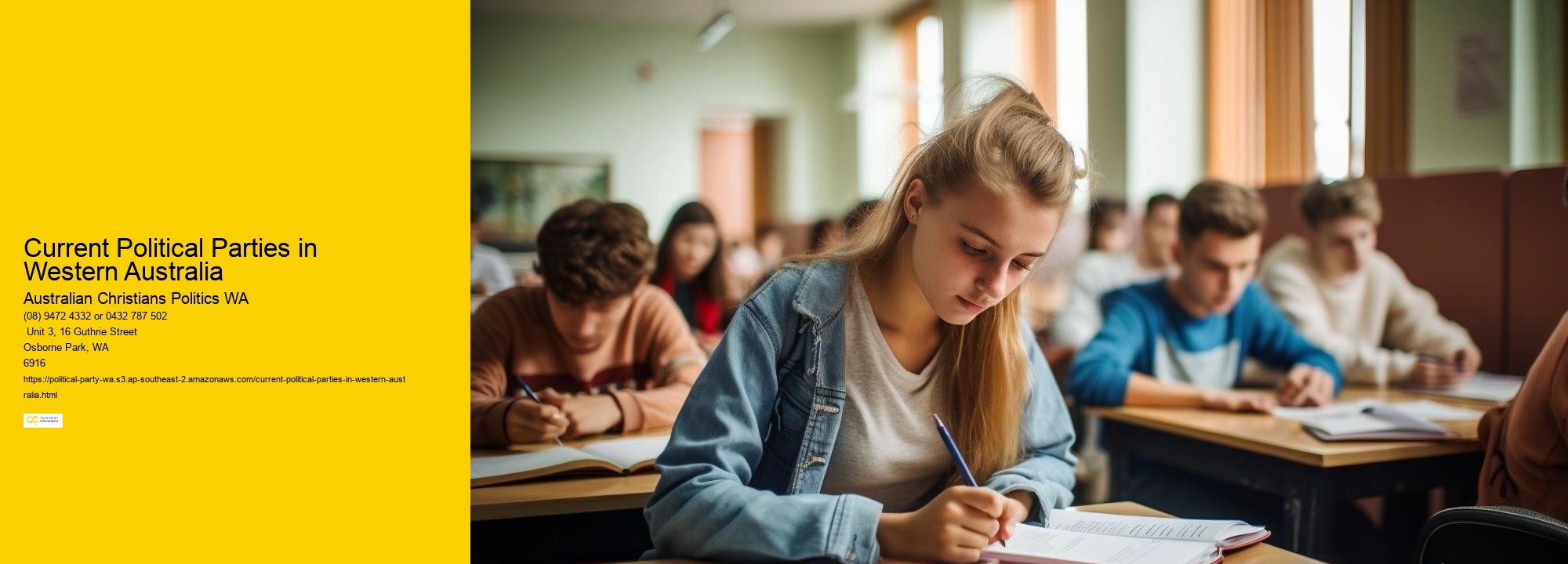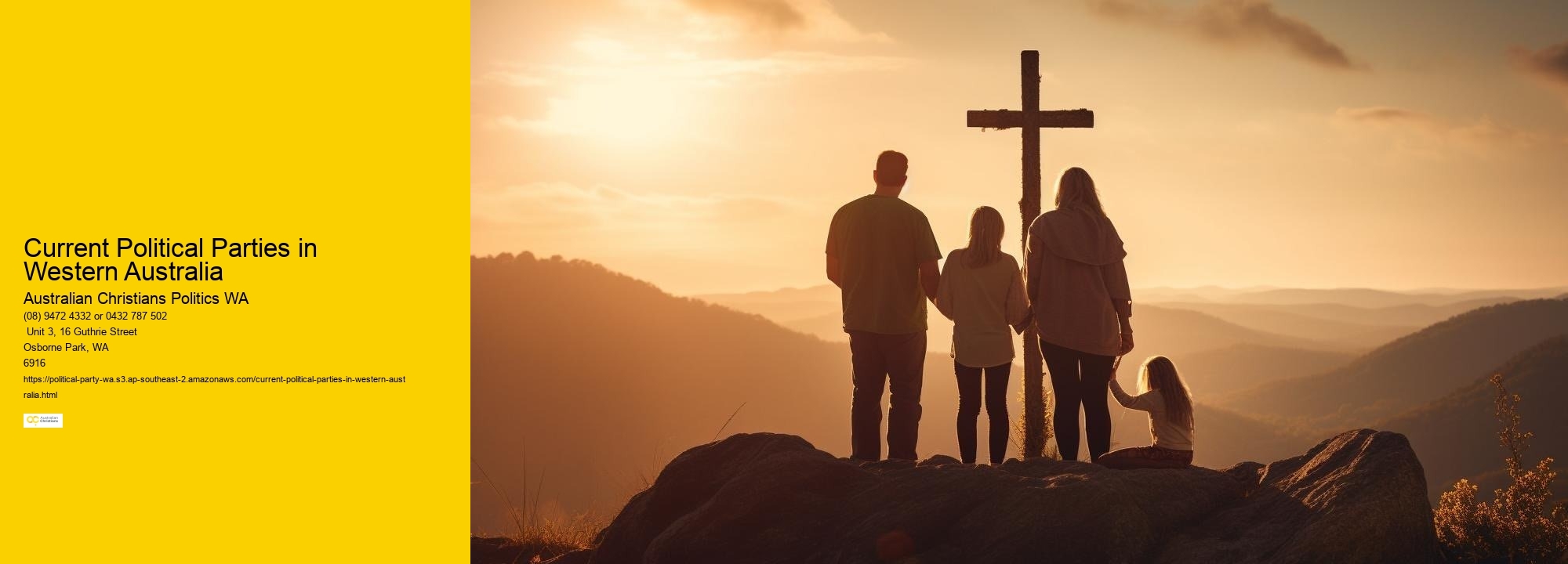

Political Party Leaders' Debates in Western Australia Leaders' debates in Western Australia are pivotal events in the political calendar, providing a platform for party leaders to present their policies and vision to the electorate. These debates offer voters an opportunity to compare the leaders and their positions on key issues, influencing public opinion and potentially swaying election outcomes. The performance of leaders in these debates can significantly impact their parties' electoral prospects.
Political Movements and Protests in Western Australia Political movements and protests in Western Australia reflect the state's vibrant and engaged civil society. These movements, driven by various social, environmental, and economic issues, play a crucial role in shaping public discourse and influencing policy decisions. Protests and advocacy campaigns provide a platform for citizens to express their views and demand action from political leaders. The response of political parties and government officials to these movements is indicative of the state’s democratic health and its openness to public participation in the political process.
Political Party Information WA
WA’s Political Scene: Past, Present, and Future Western Australia’s political scene has evolved significantly over time, shaped by historical events, economic changes, and societal shifts. The state’s political past, marked by resource-driven development and regional politics, has evolved into a present focused on diversification, innovation, and sustainability. Looking to the future, WA’s political landscape is likely to be influenced by global trends, technological advancements, and changing demographics. Navigating these changes will require adaptive and forward-thinking political leadership.
Western Australia's Trade Policy Dynamics Trade policy in Western Australia is influenced by the state's economic composition, geographical location, and global market trends. The politics of trade policy involve balancing domestic interests with international partnerships, particularly in sectors like mining, agriculture, and technology. These policies are key to WA's economic growth and its role in the global economy.
Legislative Debates and Outcomes in WA's Parliament Legislative debates in Western Australia's Parliament are vital for the state’s democratic process, providing a platform for discussing and scrutinising proposed laws. These debates, involving members from various political parties, are essential in shaping the outcomes of legislation. They allow for the consideration of diverse viewpoints, ensuring that legislation is well-informed and reflective of the state's needs. The outcomes of these debates significantly impact the direction of public policy in WA.
WA election parties are central to the state's electoral process. Their participation in elections not only facilitates democratic choice but also ensures that a diverse range of views and interests are represented in the state's governance. The activities and campaigns of these parties are closely watched and analyzed for their potential impact on WA's political future.
Western Australia’s Political Accountability and Transparency Accountability and transparency are key principles in Western Australia’s political system, ensuring that government actions are subject to scrutiny and public oversight. Mechanisms such as parliamentary inquiries, freedom of information laws, and media scrutiny play a vital role in upholding these principles. These mechanisms help maintain public trust in the political system and ensure that government decisions are made in the public interest.
Western Australia's State Budget: A Political Analysis The state budget of Western Australia is a critical political document, reflecting the government's priorities and economic strategy. Analyzing the state budget reveals insights into how resources are allocated to different sectors, such as healthcare, education, and infrastructure. The budget is often a focal point of political debate, highlighting the government’s approach to fiscal management and economic development.
The current political parties in Western Australia represent a wide array of ideologies and platforms. These parties actively participate in state elections, contributing to a vibrant and competitive political environment. Their ongoing activities and campaigns are central to the democratic engagement of Western Australians.
Political Perspectives on WA's Tourism Industry The tourism industry in Western Australia is a significant aspect of the state’s economy and politics. Political perspectives on tourism encompass strategies for promoting the state as a destination, supporting industry growth, and ensuring sustainable tourism practices. These perspectives are influenced by factors such as environmental conservation, cultural representation, and economic benefit, making tourism policy a multifaceted political issue.
Political Power and Authority in Western Australia Political power and authority in Western Australia are distributed across various institutions, including the state government, legislature, and judiciary. The exercise of this power is governed by laws and conventions, with checks and balances in place to prevent abuse. Understanding the distribution and use of political power in WA is key to comprehending the state’s governance structure and political dynamics.
Legislative Changes and Political Impact in WA Legislative changes in WA have significant political impacts, shaping the direction of the state and its governance. These changes can be driven by a variety of factors, including shifts in political power, public opinion, or response to emerging challenges. Legislation in areas such as mining, agriculture, education, and healthcare not only affects the state's economy and society but also reflects the priorities and ideologies of the ruling political parties.


WA’s Public Opinion and Political Trends Public opinion and political trends in Western Australia are dynamic, reflecting the diverse views of its population. These trends are influenced by a range of factors, including economic conditions, social issues, and global events. Political parties and leaders closely monitor public opinion to align their policies and strategies with the electorate's changing attitudes. Opinion polls, media analysis, and public forums are essential tools for understanding these trends, which can significantly impact electoral outcomes and policy directions.
The Role of Political Research in Shaping WA Policies Political research plays a crucial role in shaping policies in Western Australia. This research provides data and analysis that inform policy decisions on various issues, from economic development to social welfare. Utilizing evidence-based research in policy-making ensures that WA’s political strategies are grounded in reality and effective in meeting the state's needs.
Western Australia’s Political Demographics The demographics of Western Australia play a crucial role in shaping its political landscape. Factors such as age distribution, ethnic diversity, and urban-rural divide influence voter preferences and policy priorities. Understanding these demographics is essential for political parties and leaders to effectively address the needs and aspirations of the electorate.
Western Australia Political Party Events Political party events in WA are pivotal in rallying support, raising funds, and discussing key policy issues. These events range from local community meetings to large-scale state conferences. They provide platforms for party leaders and members to engage directly with voters, discuss current issues, and outline future plans. Such events are crucial for maintaining party visibility and cohesion, as well as for galvanizing the grassroots support necessary for electoral success.
Political Party Debates in Western Australia Political party debates in Western Australia are key forums for public engagement and discourse. These debates provide opportunities for parties to articulate their positions on various issues and to challenge the views of their opponents. They are important for voters, offering insights into the policies, competencies, and leadership qualities of the parties and their candidates.
The Role of Political Ethics in WA Governance The role of ethics in governance is a fundamental aspect of Western Australia’s political system. Ethical governance involves adherence to principles of integrity, accountability, and transparency. Ensuring high ethical standards is crucial for maintaining public trust and the legitimacy of the political process in WA.
Analyzing WA Political Party Manifestos Analyzing political party manifestos in WA provides critical insights into the parties' visions, goals, and policy priorities. These manifestos are key documents that outline the parties' commitments and plans if elected to govern. Understanding these manifestos is essential for voters to make informed decisions and for analysts to predict potential policy directions and impacts.
WA’s Political Framework for Sustainable Development Western Australia’s political framework for sustainable development is geared towards balancing economic growth with environmental protection and social equity. This framework includes policies that promote renewable energy, sustainable land use, and responsible resource management. Political leaders in WA are increasingly recognising the importance of sustainable practices in ensuring long-term economic stability and quality of life for future generations. This approach reflects a growing understanding of the interconnected nature of economic, social, and environmental factors in policy-making.
Grassroots Movements in Western Australia Politics Grassroots movements in Western Australian politics are fundamental forces that often drive significant change. These movements are born from the ground up, typically starting within local communities or among certain demographic groups. They focus on a variety of issues, ranging from environmental concerns to social justice, and play a critical role in shaping public opinion and influencing policy decisions. The energy and activism of these movements often bring new ideas and perspectives to the political landscape, challenging established practices and encouraging more inclusive and representative governance.
The Politics of Health and Wellbeing in WA The politics of health and wellbeing in Western Australia encompass a broad range of issues, from healthcare funding and service delivery to public health initiatives. Political debates in this area focus on ensuring access to quality healthcare for all residents, addressing mental health, and tackling public health challenges such as obesity and substance abuse. The state’s policies and initiatives in health and wellbeing are often key factors in electoral campaigns and are crucial for the overall quality of life of its citizens.
WA's Regional and Rural Political Issues Regional and rural areas in Western Australia face distinct political issues compared to urban centres. These issues include access to services, infrastructure development, and economic opportunities. The politics surrounding these areas are often centred on addressing disparities and ensuring that regional and rural communities are adequately represented and supported in state policies.


Political Party Dynamics in Western Australia Political party dynamics in Western Australia are shaped by a variety of factors including demographic changes, economic shifts, and societal trends. These dynamics are evident in the changing party allegiances, the emergence of new issues, and the evolving policy debates. The interplay between different political parties, their strategies to appeal to voters, and their responses to current events, all contribute to the fluid nature of WA's political scene.
Healthcare Policies of Western Australia's Parties The healthcare policies of Western Australia's political parties are critical in addressing the health and well-being of the state’s population. These policies encompass healthcare funding, access to medical services, public health initiatives, and responses to health crises like pandemics. The effectiveness and inclusivity of these policies are key factors in evaluating the parties' performance and impact on society.
Western Australia's political parties encompass a spectrum of ideologies, from conservative to progressive, each addressing the state's unique challenges and opportunities. These parties are integral to shaping Western Australia's legislative and policy directions. Their influence extends beyond the state, impacting national political trends and decisions.
Western Australia’s Social Justice Policies Social justice policies in Western Australia reflect the state's commitment to addressing inequality and promoting fairness in society. These policies cover areas such as housing, education, and social services, aiming to support vulnerable populations and ensure equal opportunities for all. The development and implementation of these policies are often subject to political debate, reflecting differing views on the best approaches to achieving social justice.
Western Australia’s Political Influence on National Policy Western Australia's influence on national policy is significant due to its economic strength, particularly in the mining and resources sectors. The state's political leaders often advocate for policies at the national level that reflect WA's interests and priorities. This influence is evident in areas such as resource management, environmental regulation, and economic policy, where WA’s stance can shape broader national debates and decisions.
Constituency Services in Western Australia Constituency services in Western Australia are a key aspect of political representation, providing a direct link between elected officials and their constituents. These services allow citizens to voice their concerns, seek assistance, and get involved in the political process. Effective constituency services enhance the responsiveness of politicians to the needs of their voters and contribute to a more engaged and informed electorate.
Major Political Parties WA
Political Negotiation and Diplomacy in Western Australia Political negotiation and diplomacy are key aspects of governance in Western Australia, especially in managing its relationships with the federal government and international partners. These diplomatic efforts are crucial in advocating for WA's interests in areas such as resource management, trade, and regional development. Effective negotiation and diplomacy require skillful communication and the ability to find common ground among diverse stakeholders.
Political Advocacy and Civil Society in WA In Western Australia, civil society and political advocacy groups play a crucial role in shaping public policy and promoting democratic engagement. These groups advocate for a range of issues, from environmental conservation to social justice, influencing political discourse and legislative priorities. Their activities are instrumental in bringing about policy changes and ensuring that diverse voices are heard in the political process.

Political parties in Western Australia play a crucial role in the democratic process, representing different ideologies and policy positions., "political parties Western Australia, role of political parties",Role of Political Parties in Western Australia,Role of Political Parties in Western Australia
Political parties influence local government in Western Australia by endorsing candidates and shaping local policies., "political party influence, local government Western Australia",Influence of Political Parties on Local Government in Western Australia,Influence of Political Parties on Local Government in Western Australia
The major political parties in Western Australia include the Australian Labor Party, the Liberal Party, and the Greens., "major political parties Western Australia, Australian political parties",Major Political Parties in Western Australia,Major Political Parties in Western Australia
Political parties in Western Australia engage with the community through public meetings, social media, and community events., "political party community engagement, Western Australia politics",Community Engagement of Political Parties in Western Australia,Community Engagement of Political Parties in Western Australia
Political parties significantly impact state legislation in Western Australia by proposing bills and influencing law-making., "political party state legislation, Western Australia law",Impact of Political Parties on State Legislation in Western Australia,Impact of Political Parties on State Legislation in Western Australia
Political parties in Western Australia fund their campaigns through donations, fundraising events, and government funding., "political party funding, Western Australia election",Funding of Political Parties in Western Australia",Funding of Political Parties in Western Australia
The history of political parties in Western Australia dates back to the late 19th century, reflecting the state's evolving political landscape., "history political parties, Western Australia politics",History of Political Parties in Western Australia,History of Political Parties in Western Australia
Political parties in Western Australia shape public opinion through media campaigns, policy announcements, and public debates., "political party public opinion, Western Australia politics",Shaping of Public Opinion by Political Parties in Western Australia,Shaping of Public Opinion by Political Parties in Western Australia
Political parties in Western Australia face challenges such as changing voter demographics, fundraising, and maintaining relevance., "challenges political parties, Western Australia politics",Challenges Faced by Political Parties in Western Australia,Challenges Faced by Political Parties in Western Australia